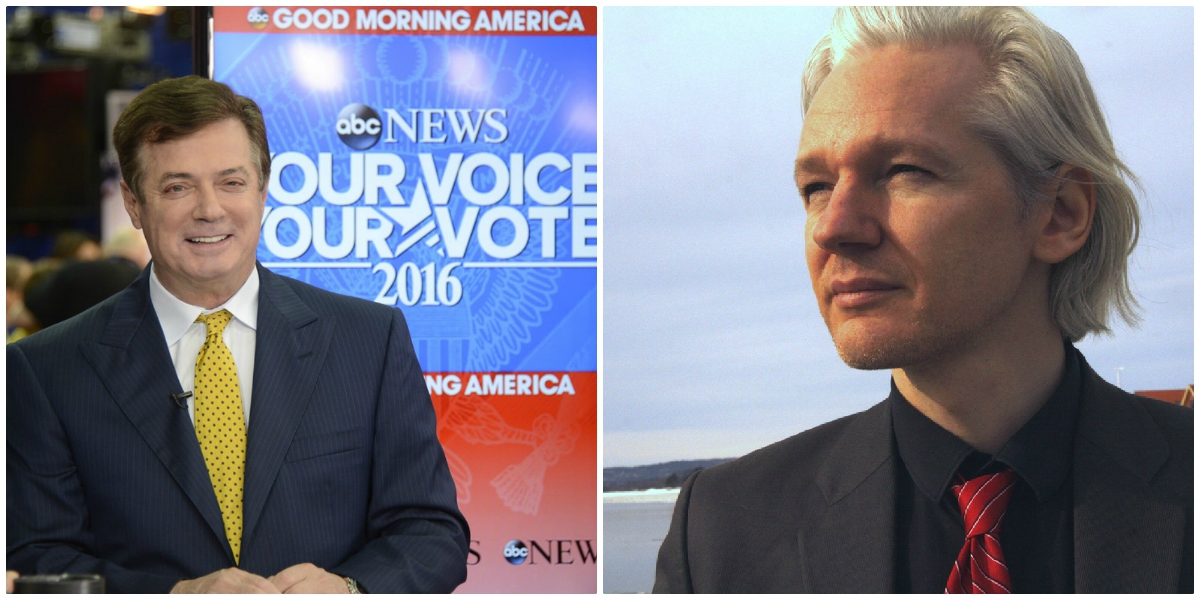Journo-terrorism is ‘weaponized journalism’ carried out by the Washington Post, CNN and NYT
01/17/2017 / By Natural News Editors

Defying any sense of journalistic integrity and loyalty to the truth, the Washington Post did it again — publishing Fake News for clicks — which had the desired effect of worldwide outrage to suit a tightly-defined political agenda. (See more examples of fake news at NewsFakes.com)
(Article by Claire Bernish from TheFreeThoughtProject.com)
This latest astounding deviation from the facts, however, makes indisputably clear the weaponization of news. Journalists and media outlets make mistakes from time to time, but a pattern and practice of publishing unfounded, unverified, and fraudulent articles cannot be characterized simply as irresponsible.
We are in the midst of an information war of epic proportions — led haplessly astray of the truth with the Post leading the way — and it’s a dangerous and frightening portent of things to come, not the least of which will be propagandized truth and heavy-handed censorship.
On Friday, WaPo published an article claiming President-elect Donald Trump fired Washington, D.C., National Guard Major General Errol R. Schwartz — just in time for the inauguration — and that he would be forced to leave his post as soon as the president takes the oath of office.
But that isn’t true.
“My troops will be on the street,” Schwartz told the Post. “I’ll see them off, but I won’t be able to welcome them back to the armory.” He added he would “never plan to leave a mission in the middle of a battle.”
WaPo’s erroneous reporting included a statement from D.C. Council Chairman Phil Mendelson, who lamented, “It doesn’t make sense to can the general in the middle of an active deployment.”
“I’m a soldier,” the Post quoted Schwartz. “I’m a presidential appointee, therefore the president has the power to remove me.”
But WaPo left out a number of critical points — and horrendously slanted the rest — about this “firing” of the head of the D.C. National Guard.
That D.C. position — unlike the equivalent for states — is appointed by the president, not by the Pentagon, as the Post suggested, nor by any branch of the military. Also, the article glaringly omitted any statement from the Trump transition team, an inexcusable offense, considering it later emerged Schwartz had been offered to keep his position through the end of Inauguration Day — it was Schwartz who turned down the offer, preferring instead to vacate the role at 12 noon, when Trump will be sworn in.
Of course, the blatant misinformation presented by the Post seemed so juicy, countless corporate outlets parroted the claim. Thus this Fake News rippled around the planet earning the scorn of millions who believed Trump must have lost all sensibility for firing a man who had diligently performed his duties since his appointment to the post by former President George W. Bush — during a potentially dangerous event.
This also spawned a number of rumors — with raucous protests planned for Inauguration Day, and the week before, why would the incoming president fire the man in charge of security? Isn’t this a preposterous decision on Trump’s part? What is Trump thinking?
Like previous viral stories — at this point, one would be hard-pressed to deem them ‘news articles’ — the Washington Post published faulty information and subsequently began backtracking.
Notably, in each case, after erroneous information went viral worldwide, edits after publication go largely unnoticed by most of the populace. While retractions and post-publication editor’s notes sometimes appear on WaPo’s articles they are orders of magnitude less popular than the original story and, in this instance, the firing of Schwartz story has only been appended in content — no editor’s note yet graces the top or bottom of the article. (The original version can be found here.)
Any news organization actually practicing journalism would tell you this is egregiously irresponsible.
Except, it’s beginning to appear the Washington Post publishes misinformation and Fake News intentionally — knowing any subsequent disputation of its claims won’t gather as much steam as the original publication.
A distinct reason exists why this would be the case — Brandolini’s law.
“The amount of energy necessary to refute bullshit is an order of magnitude bigger than to produce it,” Alberto Brandolini, an Italian independent software development consultant, keenly observed in 2013 — the Post knows this, and has been manipulating public perception exactly this way.
It was, after all, the Washington Post who initiated the altogether ironic war on Fake News — first turning from journalistic duty in the publication of several items blaming disinformation for the downfall of, well, nearly everything.
WaPo published an ‘article’ about supposed blacklist of over 200 outlets a nascent and seemingly prepubescent website, PropOrNot, had decided were Russian propagandists — linked either directly to the Russian government or had haplessly joined the effort by reporting Fake News during the election.
Literally nothing in that Post article was true. None of the claims were backed by evidence, no research or investigation had been performed, nothing. WaPo just printed the claims of PropOrNot and inserted plausible deniability by failing to link to the list the site. A subsequent retraction at the top of the page was akin to plugging a crack in a dam that’s already burst — damage to many reputable and award-winning outlets listed had already been done.
Additional stories from the Post — none including any proof — blamed The Russians for everything from meddling in the U.S. election to install Trump, to hacking into the power grid in Vermont. ‘We’re all in peril because Russia,’ WaPo repeatedly claimed — without so much as a shred of evidence.
Has the Post — and the rest of mainstream media — abandoned journalism?
Prior to the faulty article on Schwartz, an op-ed unintentionally gave sharp insight into what’s actually going on — the outlet attempted to retire the term Fake News.
By declaring the term Fake News more damaging than Fake News, itself, the Post exposed its end game — propaganda. Alternative and independent media has done a fantastic job of using the term against corporate outlets — particularly WaPo.
So, by ending its self-declared war on Fake News officially over, any outlets terming corporate media’s false stories Fake News will be seen as doing damage to journalism — giving the Washington Post and its ilk free rein to continue publishing misinformation — and taking the punch out of anyone criticizing such stories as the Fake News they actually are.
In effect, the Post — and outlets parroting its articles — have thus weaponized the news.
Using the distraction of semantics, the once-illustrious outlet has established its method of inserting propaganda into the American news cycle. In fact, three of the most crucial tools of a propagandist are semantics, the media, and misinformation — the wider the audience, the better, as is the situation for WaPo.
Indeed, in all this murkiness, one thing remains clear: the Post uses a two-pronged attack — one against alternative media and outlets who failed to support Hillary Clinton (or, worse, dared to report on Democrat establishment corruption exposed by Wikileaks), and another intending to paint Russia as a rogue enemy state.
While the former represents the agenda of the ailing political establishment, the latter constitutes the more perilous goals of the military-industrial machine — perhaps with the ultimate conclusion of war against the nonexistent threat of Russia. The incidental attempt to smear Trump’s reputation shouldn’t be ignored.
But the end goal isn’t necessarily as urgent as the alarming methods employed. Now that President Obama signed pro-U.S. propaganda into law with the signing of the 2017 NDAA, we can expect more of the same — indeed, it’s worth questioning whether the Washington Post got an early start for a reason.
Outrageous claims made in the Post’s Fake News are exponentially injurious to the truth, because when the public must constantly question whether articles, outlets, and news items have integrity, information — both faulty and factual — has become a weapon.
In short, it may appear the Washington Post and other corporate outlets incompetently publish poorly-vetted articles, but the reality evinces a far darker turn toward propaganda over the imperative of journalism to report the facts.
This is Russian roulette with facts — and that’s every bit as treacherous as it sounds.
Read more at: TheFreeThoughtProject.com
Tagged Under: bad journalism, CNN, fake news, mainstream media, NYT, Trump, Washington Post




















